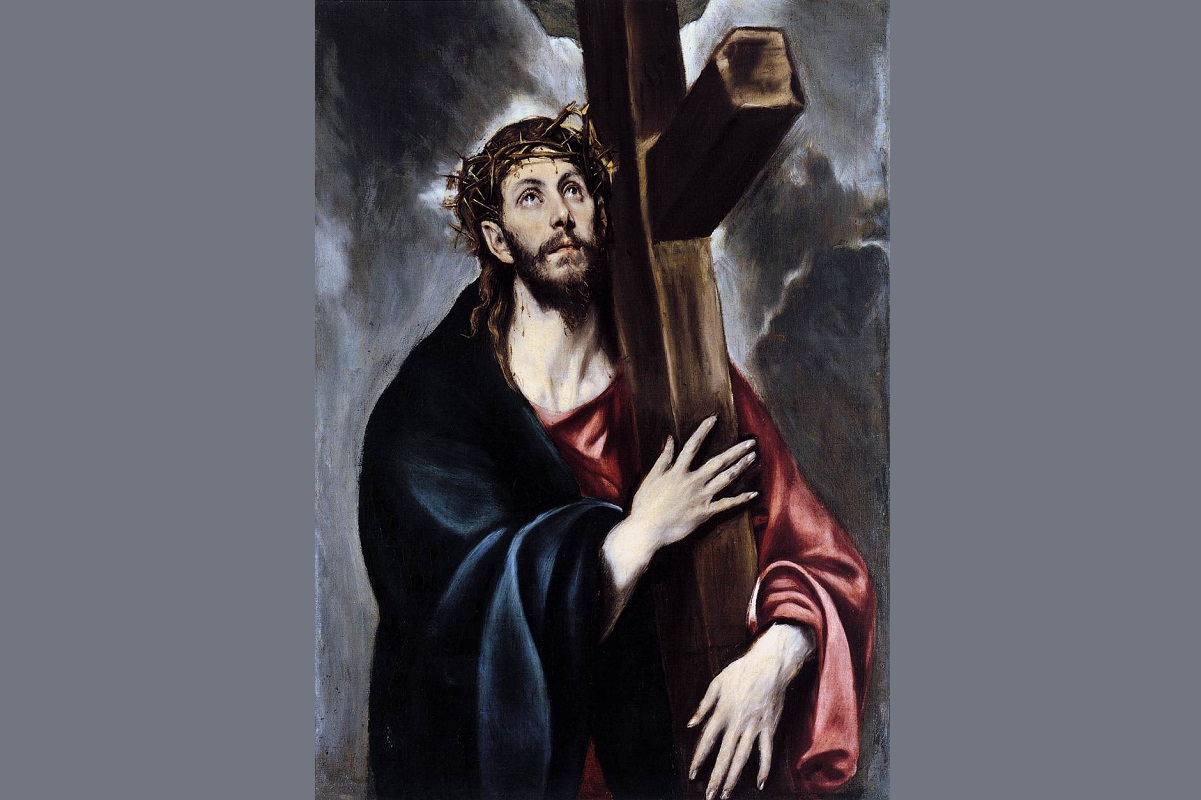By Vir Christi
When Holy Week arrives, there is a sense of anticipation among Catholics. Easter is right around the corner! Palm Sunday begins a countdown to Easter for many people, a time when we can return to the things we gave up for Lent and don’t have to worry about rigorously adhering to the meatless Friday penances. But is this really the right way to approach Holy Week? How do we make the most effective use of our time during the holiest week of the liturgical year?
Pause to Reflect
Holy Week is loaded with days that offer ample opportunity for reflection. Most dioceses celebrate their Chrism Mass during Holy Week; that provides a good time to consider what an enormous gift God has given the Church to be able to baptize new members, ordain men to the clerical state, and bless the sick. For those reasons Jesus called the Twelve to Himself!
Then on Spy Wednesday, the Church remembers how Judas Iscariot rejected Jesus’ invitation to apostleship in exchange for a payment of silver. In what ways have we rejected the invitation of Christ to go deeper with Him? Where in our lives have we placed other things in a higher place of honor than Jesus?
The two days of Holy Thursday and Good Friday are joined together in a particular way to reinforce the significance of Jesus giving us Himself in the Eucharist. There is no Eucharist without the Cross. Jesus spent three years preaching and healing to set up the events that the Church remembers each year on Holy Thursday and Good Friday. Do we treat the Eucharist as though it’s just another meaningless ritual, or do we pause to reflect on how much Our Lord gave up in order to give us the Eucharist? When we prepare to receive Holy Communion at Mass, do we take a moment to look up at the crucifix and remember why we’re able to partake of the Eucharist in the first place? How did Jesus feel on the Cross, knowing that so many people would hear about what happened in His Passion and still reject Him?
Holy Saturday is often treated by Catholics as a day randomly thrown into the middle of the Triduum, just one more waiting period we have to go through before we can get to the good stuff on Easter. Do we treat it as a day of silence, reflecting the silence of Christ lying in the tomb? Can we imagine what the Eleven and the women who accompanied Jesus must have felt like, wondering if their faith was in vain? Do we allow ourselves to enter into their sorrowful longing to be reunited with the Lord, so as to open ourselves more fully to the joy of Easter? Each day of Holy Week from Palm Sunday to Easter Sunday is rich with material for reflection. It’s important to pause on each day to take advantage of this.
Don’t Run, Walk to Easter
We shouldn’t treat Holy Week as though it were a final sprint at the end of the season of Lent. From the very first moments of the Palm Sunday Mass to the joyful notes of the opening hymn at Easter Mass, we should be drawn into the emotions of the week.
Feel the joyful anticipation of the crowds that greeted Jesus arriving triumphantly in Jerusalem on Palm Sunday, expecting Him to begin the Messianic liberation from the Romans. Enter into the growing sense of awful horror the disciples must’ve felt when they realized that Judas had betrayed Jesus to the chief priests and the elders. Empathize with Pilate’s discomfort at what doing the right thing could cost.
These days were some of the longest in the lives of the circle of the friends and loved ones of Christ. We shouldn’t speed through them. We should feel the length of the days in the same way that they did.
See Yourself in Both Christ and the Bystanders
When we’re living Holy Week, and the Triduum especially, we have a tendency to view these days in a disconnected way. We look at them almost as if we’re distant spectators, with only a vague connection to what’s going on. Look through the eyes of Christ, recognizing in His Passion the sufferings you’ll be called to face in your life. See through the eyes of the disciples, being asked to stand up for their allegiance to Christ and choosing to flee rather than face persecution. See through the eyes of the crowd, howling for Christ’s blood to Pilate, enraged that someone holy is holding them accountable for their actions. See through the eyes of the holy women, who recognize the innocence of Christ but feel powerless to stop what is happening.
Once you actively try to see through the eyes of these different people, the events of Holy Week will come alive in your heart. You’ll gain a greater understanding of why God chose to allow Himself to be put to death. Tarry in the Triduum, and take advantage of all the graces God desires to offer you during this sacred time as we prepare for the joy of Easter!
Pick someone who played a significant role in the events we’ll hear about throughout Holy Week. It could be someone as major as Mary or Peter, or someone on the periphery like Simon of Cyrene or the centurion at the foot of the Cross. Follow their story throughout Holy Week, and when you see something from their life that resonates with something going on in yours, pause. Ask the Lord what He wants you to take away from the Passion narrative, and apply it in your life. Insert yourself into the story through the eyes of that person. If they’re a saint, ask for their intercession and help throughout the week.
How to Reflect
Now that we see the significance of truly entering into the sanctity of Holy Week, how can we go about making the most of our time? There are two good ways in which we can do this.
Make sure you set aside a portion of time every day to ponder on the events of Holy Week. In a busy world, it can be difficult to make time for prayer. During Holy Week, it’s more important than ever to make a concerted effort to carve out that time. Commit yourself to a specific time period each day: 10–15 minutes is a reasonable block that would allow you to really sit with the mysteries of Holy Week, while also being mindful of other commitments you may have. Decide before you sit down how you’re going to begin your meditations: maybe a hymn (for example, the Stabat Mater), a painting, etc. Having a starting point in mind before you begin will help you make the most effective use of your reflection time.
Remember, too, that Holy Week is a story of victory despite all of the suffering and sorrow. Find places in your life where you’ve experienced suffering or hurt recently, and ask yourself: what victory is God trying to bring about in my life? Am I getting in the way, like Peter with his sword in the Garden? Or am I facilitating the will of God, like Simon helping Jesus to carry His Cross?
Have a good Holy Week, and may it bear much fruit for you!

Vir Christi
Vir’s heart has been on fire for the Church from day one, and he dreams of the day when Constantinople will be a city again. He has a competitive drive satiated by sports and board games, but is also just as happy to sit down and read a good book for hours on end.






0 Comments